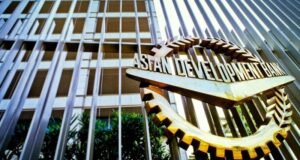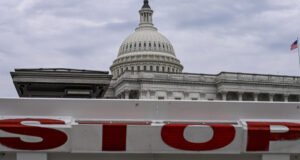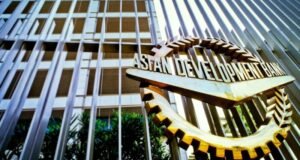
The Telegraph accused but did not name the businessman on Tuesday.
Sir Philip “categorically and wholly” denied allegations of “unlawful sexual or racist behaviour”.
The Court of Appeal issued an injunction preventing the newspaper from publishing Sir Philip’s name. It remains in force, but Lord Hain’s statement, made under parliamentary privilege, has been widely reported in the UK media.
The peer said publication of the story was “clearly in the public interest”.
The Telegraph said it had spent eight months investigating allegations of bullying, intimidation and sexual harassment made against Sir Philip.
What were the allegations made in the Telegraph?
The newspaper reported that interviews with five members of staff revealed that victims had been paid “substantial sums” in return for legal commitments not to discuss their alleged experiences.
The BBC has not been able to verify the allegations contained in the Telegraph’s report.
Lord Hain said he had been contacted by someone “intimately involved in the case”.
He said that given the use of non-disclosure agreements (NDAs) “to conceal the truth about serious and repeated sexual harassment, racist abuse and bullying”, he felt it was his duty under parliamentary privilege to name Sir Philip as the individual in question.
Parliamentary privilege protects MPs or peers from being prosecuted over statements made in the Commons or Lords and is one of the oldest rights enshrined in British law.
What does Sir Philip say?
Sir Philip said in a statement on Thursday night that he and his company, Arcadia, “take accusations and grievances from employees very seriously and in the event that one is raised, it is thoroughly investigated.
“Arcadia employs more than 20,000 people and in common with many large businesses sometimes receives formal complaints from employees.
“In some cases these are settled with the agreement of all parties and their legal advisers. These settlements are confidential so I cannot comment further on them.”
What has the reaction been?
Liberal Democrat leader Sir Vince Cable said Sir Philip “should certainly be stripped of his knighthood” if the allegations were proved to be correct.
Frank Field, who chairs the Work and Pensions Committee, said a mechanism was needed to allow the voices of abuse victims to be heard in Parliament.
“This would develop the role of the House of Commons in a way which stands up for people who have little money, against those who have much,” he said.
The MP planned to raise the issue with ministers was a matter of urgency.
What does Lord Hain say?
The peer told BBC Newsnight he decided to name Sir Philip in the Lords because “what concerned me about this case was wealth, and power that comes with it, and abuse”.
He added: “It’s for others to judge whether I’ve been right or wrong, but you know there’s no point in being in Westminster … if you never deploy the precious rights of parliamentary privilege, to be used – as I’ve said – extremely carefully with integrity and very responsibly.”
There had been some criticism of his decision on social media, but Lord Hain added: “I’ve had overwhelming support – particularly from women.”
Camilla Tominey, associate editor of the Telegraph, told BBC Radio 4’s PM it was “farcical” that Lord Hain was able to name Sir Philip in the House of Lords, but, as the paper remained the subject of an injunction, it was unable to confirm or deny a name.
“It’s not the first time it’s happened and it won’t be the last,” she said.
The people who have made the claims had “bravely” come forward to the paper with the accusations, Ms Tominey added.
“We won’t ever be naming any of the claimants.”
 Weekly Bangla Mirror | Bangla Mirror, Bangladeshi news in UK, bangla mirror news
Weekly Bangla Mirror | Bangla Mirror, Bangladeshi news in UK, bangla mirror news







